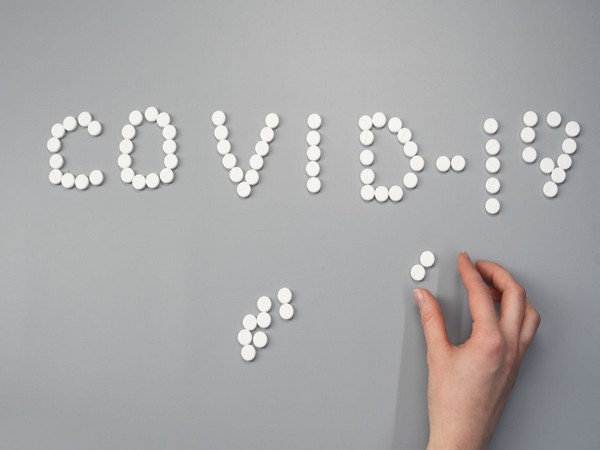Health News Roundup: Spain's COVID infections rise, but Brits still flock to its beaches; France broadens use of COVID-19 health pass, slashes fines and more
Each raised the UK to "Level Four," telling Americans they should avoid travel there. Canada to admit vaccinated U.S. tourists after more than 16 months Canada on Monday said it would allow fully vaccinated U.S. tourists into the country starting from Aug. 9 after the COVID-19 pandemic forced an unprecedented 16-month ban that many businesses complained was crippling them.

Following is a summary of current health news briefs.
60% of people being admitted to UK hospitals are unvaccinated - adviser
Britain's Chief Scientific Adviser Patrick Vallance said that 60% of people being admitted to hospital with COVID-19 are unvaccinated, correcting an earlier statement he made on Monday.
Vallance earlier said at a news conference with Prime Minister Boris Johnson that 60% of people being admitted to hospital with COVID-19 have had two doses of vaccine.
Spain's COVID infections rise, but Brits still flock to its beaches
Spain reported a new jump in its COVID-19 infection rate on Monday, with 61,628 cases registered since Friday, just as fully vaccinated British holidaymakers flocked to its beaches, giving hope to the hard-hit tourism sector. Since July 8, when Britain announced the lifting of a 10-day quarantine for returning vaccinated tourists from July 19, flight bookings to Spain have increased four-fold even though they remain far below 2019 levels, an airlines industry group said.
France broadens use of COVID-19 health pass, slashes fines
The French government adjusted its new plan to fight COVID-19 on Monday, slashing planned fines and postponing them to an unspecified date, spokesman Gabriel Attal said. The measures, which include requiring a health pass in a wide array of venues from the start of August and making vaccination mandatory for health workers, will still account for some of the toughest in Europe.
U.S. coronavirus cases rise, fueling fears of resurgence
A rapid increase in coronavirus cases in the United States and abroad is fueling fears of a pandemic resurgence and sending shockwaves through the stock market as the highly contagious Delta variant takes hold and vaccinations lag in several states. Largely due to outbreaks in parts of the country with low vaccination rates, the number of new cases, hospitalizations and deaths due to COVID-19 have been on the rise in recent weeks.
U.S. issues 'Do Not Travel' advisory for UK over COVID-19
The U.S. State Department and the U.S. Centers for Disease Control and Prevention (CDC) both issued on Monday their highest warnings against travel to the United Kingdom because of a rising number of COVID-19 cases in that country. Each raised the UK to "Level Four," telling Americans they should avoid travel there.
Canada to admit vaccinated U.S. tourists after more than 16 months
Canada on Monday said it would allow fully vaccinated U.S. tourists into the country starting from Aug. 9 after the COVID-19 pandemic forced an unprecedented 16-month ban that many businesses complained was crippling them. Inoculated visitors from countries other than the United States will be permitted to enter beginning on Sept. 7. The relaxation depends on Canada's COVID-19 rates remaining favorable, officials said.
Armenia becomes vaccine tourism hot spot for Iranians
Iranians facing a shortage of COVID-19 vaccines at home are travelling to neighbouring Armenia as tourists in growing numbers to get inoculated there for free, according to data from Armenia's tourism board. Armenia has approved three vaccines against COVID-19 - Russia's Sputnik V, China's CoronaVac and AstraZeneca's vaccine and initially offered all of them free to foreign visitors.
No trace of mRNA vaccine found in breast milk; gene found that helps identify COVID-19 early
Here is a roundup of some of the latest scientific studies on the novel coronavirus and efforts to find treatments and vaccines for COVID-19, the illness caused by the virus. No trace of vaccines' mRNA seen in breast milk
Thai health workers use canals to get to remote COVID-19 patients
Two Thai health workers zip up their protective suits, put on masks and face shields and slowly climb aboard a small boat waiting in the reeds on the banks of a countryside canal. This is the best way to ensure remote communities in Samut Prakan, a province on the fringes of the capital Bangkok, get some access to checkups as the country struggles to slow the spread of the coronavirus.
Britain says most children will not be given COVID jabs
Britain said on Monday it has decided against giving mass COVID-19 vaccinations to all children and they would only be offered in certain situations such as when young people have underlying health conditions. Compared with adults, children are much less likely to develop severe illness following infection with the coronavirus. But the majority of British parents in a survey this month said they favoured giving their children a vaccine if offered it.
(With inputs from agencies.)
ALSO READ
Top medal contenders at the Paris Olympics: United States and China predicted to dominate
FACTBOX-How Elon Musk's pay package compares to other top CEOs in United States
Zydus Lifesciences introduces generic treatment for overactive bladder in the United States
Thailand's capital city Bangkok joins UNESCO Global Network of Learning Cities
France's Macron: Europe should show it is not the vassal of the United States










